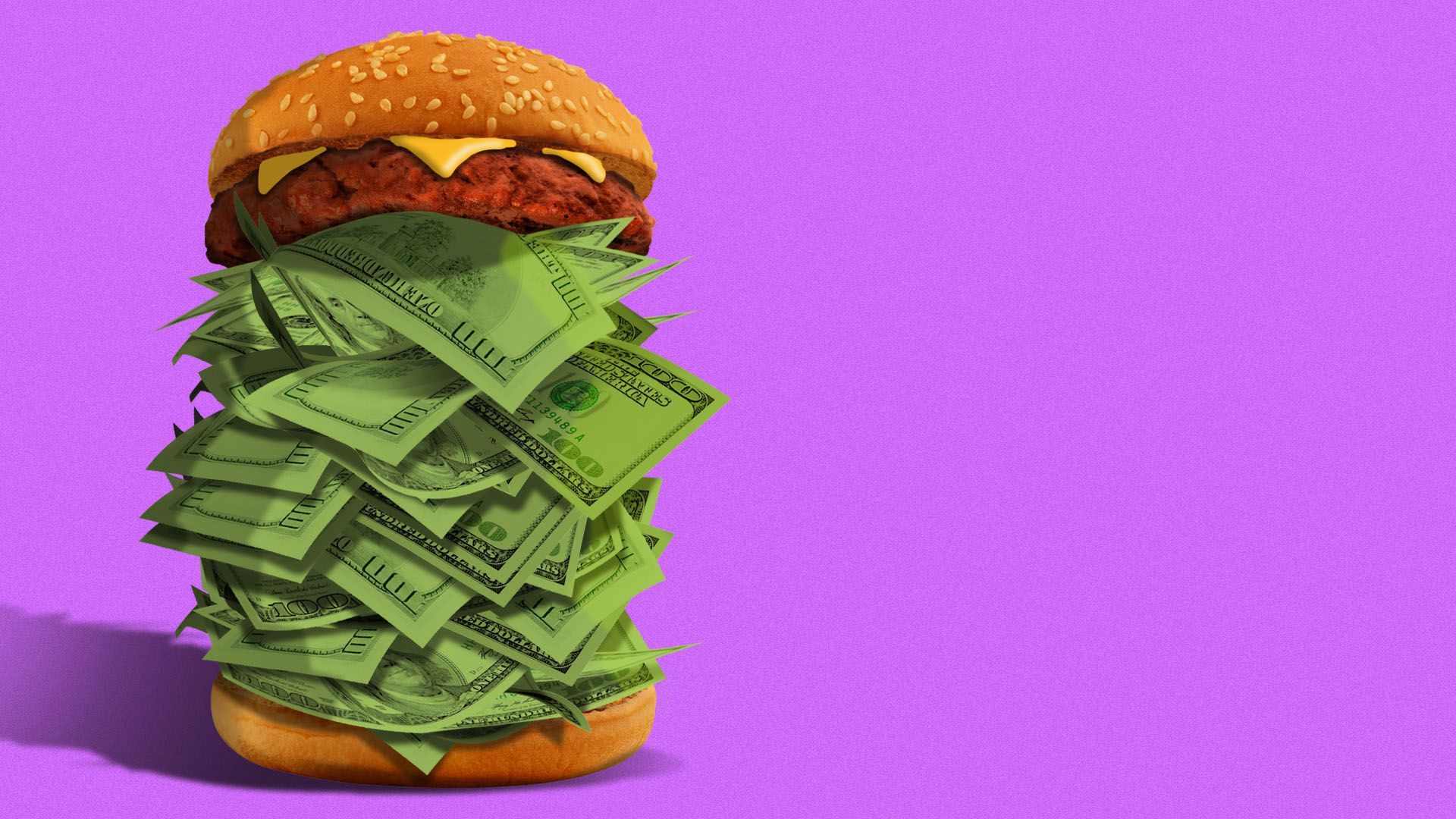The high cost of beef drama
Add Axios as your preferred source to
see more of our stories on Google.

Illustration: Sarah Grillo/Axios
The beef industry is having a rough year — and consumers are footing some of the bill from the fallout.
Why it matters: The ransomware attack on meatpacking giant JBS is the latest hit. But other blows, like droughts, could cause sticker shock to stick around for years.
What they're saying: The issues will "increase beef prices probably for the next two to three years," given beef's long production cycle, says Katelyn McCullock, a senior economist at the Livestock Marketing Information Center.
Where it stands: Beef and veal prices are up over 3% from a year ago, according to the latest government data.
What's happening...
- Dry conditions across the country. It throws a wrench in the pasture and hay production critical for cattle, says McCullock.
- Pandemic hangover. Longtime cattle backlogs "came home to roost ... and there's just not enough capacity to catch up in the beef-packaging industry right now," says Matt Wiegand, a commodity broker at FuturesOne. (In other words, too many cattle for the available space to package it.)
- The JBS ransomware attack — which pushed some of its plants offline — "certainly didn't help" with packaging companies trying to keep up, Derrell Peel, an agricultural economist at Oklahoma State University, tells Axios.
Worth noting: Meatpackers have been hit by other headwinds as they also deal with continued fallout from COVID-19.
- Fellow meatpacking giant Tyson Foods said last week it would appoint its fifth new chief executive in as many years.
- Tyson and JBS and other packers paid millions to settle price-fixing suits earlier this year.
The bottom line: "Your food bill is going up, but your meat bill might increase a little bit faster than other food products," says McCullock.
